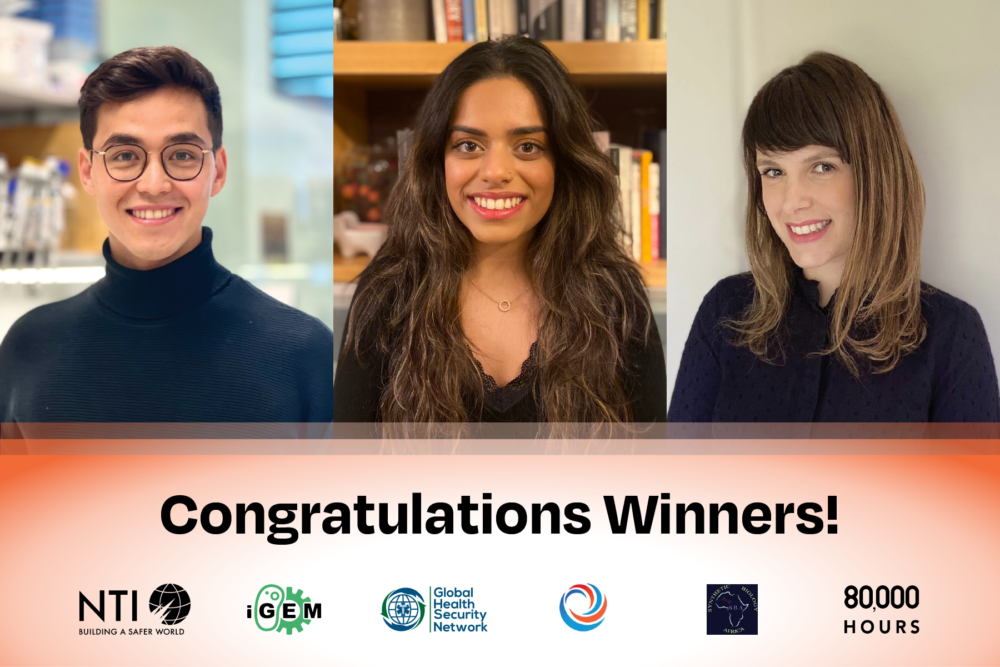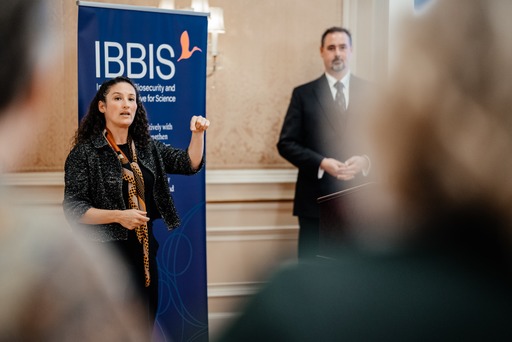
NTI | bio Offers Biosecurity Solutions at the Biological Weapons Convention Review Conference
NTI | bio experts contributed to the 9th Biological Weapons Convention Review Conference in Geneva.
NTI, in partnership with the Next Generation for Global Health Security (GHS) Network (NextGen), the iGEM Foundation, SynBio Africa, Global Health Security Network (GHSN), and 80,000 Hours, have selected the winners of the seventh annual Next Generation for Biosecurity Competition:
Dozens of students and early-career professionals from 16 countries across five continents submitted research papers for the 2023 competition, which sought policy proposals to promote biosecurity-by-design to bolster emerging bioeconomies. An international expert panel of more than 20 judges evaluated the papers and chose the winning team through a three-round process.
In their winning paper, Biosecurity-by-Design to Safeguard Emerging Bioeconomies: Integrating Biosecurity Considerations into the Complete Biotechnology Innovation and Development Pipeline, the team proposes a ‘biosecurity-by-design’ approach to ensure that biosecurity is integrated into every stage of the life science research and development pipeline, especially project conceptualization. The three authors outline a set of recommendations to achieve this goal, including fostering a culture of responsibility among scientific communities through the adoption of the Tianjin Biosecurity Guidelines for Codes of Conduct for Scientists as a global standard in emerging bioeconomies. The authors emphasize the importance of engaging with the private sector and encourage governments to incentivize biosecurity in product design by using levers such as market access regulations or reputational rewards through seals of approval. The authors also propose that States Parties at the Biological Weapons Convention adopt a systematic review mechanism for science and technology to raise awareness of emerging biotechnology risks. Overall, these recommendations aim to make biosecurity an integral part of biotechnology innovation while allowing the bioeconomy to flourish.
Competition winners will receive travel support to attend the Biological Weapons Convention Meeting of States Parties in Geneva, Switzerland. They will present on their paper during an NTI side event, “The Convergence of AI and the Life Sciences: Safeguarding Biotechnology, Bolstering Biosecurity, and Supporting Bioeconomies” on Friday, December 8, 2023, at 1:15 – 2:45PM Central European Standard Time. More information can be found here.
The Next Generation for Biosecurity Competition promotes the establishment of a global cross-sector cadre of early-career professionals dedicated to reducing catastrophic biological risks.
Sign up for our newsletter to get the latest on nuclear and biological threats.
NTI | bio experts contributed to the 9th Biological Weapons Convention Review Conference in Geneva.
NTI experts briefed government representatives at a G7 working group meeting in Berlin.
NTI announces Dr. Piers Millett as the founding executive director of IBBIS, a new global biosecurity organization.


